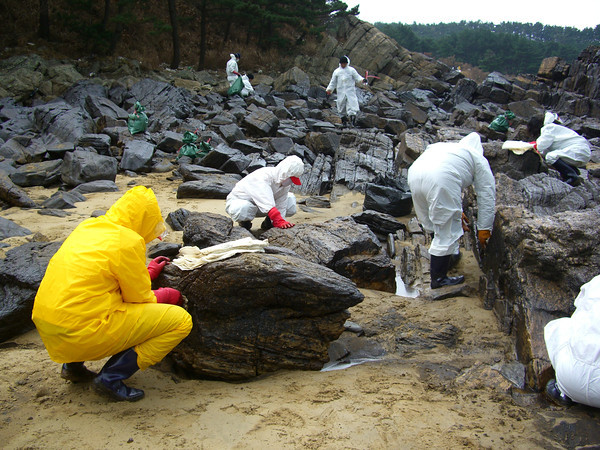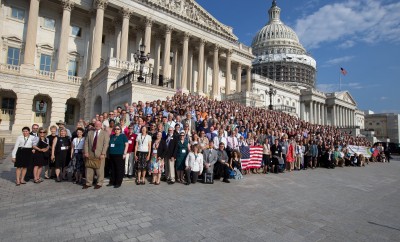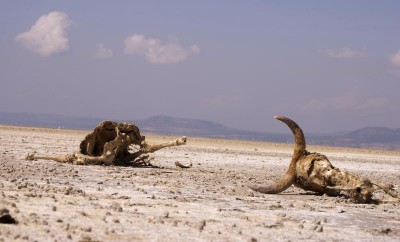Cultures
Green Cross International: Fighting ecological disasters one day at a time

Image: gcint.org
If the name makes you think of the Red Cross, you’re not far off. Green Cross International strives each day to respond to ecological disasters across the world, both manmade and natural. While ground-level relief is the name of the game, the Green Cross doubles down on prevention and education as well. Headquartered in the epicenter of global change, Geneva, Switzerland, Green Cross International is undoubtedly an invaluable environmental organization.
Who They Are
Born and bred during a time of ecological and nuclear conflict, Green Cross International has environmentalism in its core. Founder (and former Head of State of the Union of Soviet Socialist Republics) Mikhail Gorbachev first spoke about the concept of tying environmental protection with the disarmament of nuclear weapons. During the 80s, it was obvious to Gorbachev that man was rapidly reducing our planet’s ecology through unsustainable development, so he decided to speak up.
Gorbachev was at the forefront of environmental concerns by speaking at a conference in the arctic city of Murmansk in 1987, five years before the first Earth Summit in Rio de Janeiro. Throughout the next few years, his concept of creating a global organization that met ecological disasters, in the same way the Red Cross met medical emergencies, was carefully developed. Simultaneously, Swiss National Council member Roland Wiederkehr founded an organization with the same objective. The two organizations merged in 1993, under the present-day name of Green Cross International.
What They Do
The core objective of Green Cross International is to offer assistance to places in ecological need. This need could arise from a multitude of circumstances, such as: toxic waste spills, hurricanes, earthquakes, and nuclear explosions. In fact, Green Cross International had a hand in the disaster relief efforts after Hurricane Katrina, the 2010 earthquake in Haiti, and the Chernobyl and Fukushima nuclear emergencies.
Green Cross International divides their efforts into six distinct categories: Value Change, Social and Medical, Environmental Security and Sustainability, Water for Life and Peace, Smart Energy, and Green Star Awards. Several of these subsets, such as Value Change and Smart Energy, focus on prevention and education, while others are tied to ground-level disaster relief. Green Cross International also has a direct impact on daily lives in places where access to clean and sanitary water is limited through the Water for Life and Peace program. The Green Star Awards are aimed at honoring organizations that “have made remarkable efforts to prevent, prepare for, and respond to environmental emergencies—as well as to integrate environment with humanitarian action across the world.”
Get Involved
There are several ways to get involved in the efforts of Green Cross International. The first, and perhaps easiest, way is by practicing a sustainable lifestyle each and everyday. The organization outlines a few tips to make the transition into sustainability easier, such as shortening your shower by one minute, collecting rainwater to use in the garden, eating organic foods, avoiding plastic water bottles, and taking public transportation. They even encourage us to think twice about meat and coffee consumption, considering the mass amount of water that goes into the two industries.
Green Cross International is, of course, always open to donations to help support their efforts to end environmental degradation and poverty, as well as fund last-minute disaster relief endeavors. If you’re more hands-on, send a CV or resume to be considered for the internship program at their Geneva, Switzerland headquarters. Calls for volunteers are often listed on the website, but you may also contact your local office for opportunities.





0 comments